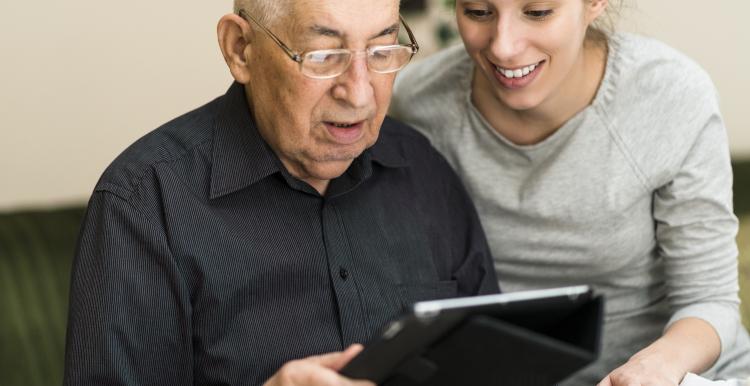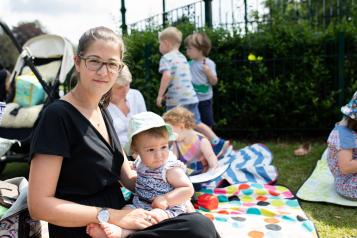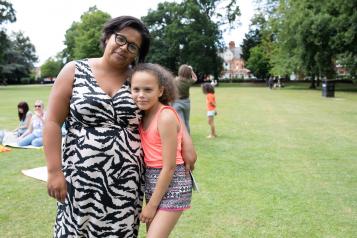Coronavirus: What does shielding mean?

Shielding advice for the clinically extremely vulnerable to stop from April
More than 3.79 million clinically extremely vulnerable people in England have been informed they are no longer advised to shield from Thursday 1 April 2021. You can see the letter with updated guidance on steps people can take to reduce their risk here.
The move follows the steady decrease in the number of COVID-19 cases and hospitalisations across the country for the last couple of weeks.
People are still advised to continue working from home where possible, but if people are unable to do so, employers are required by law to take steps to make workplaces COVID-19 secure and should discuss this with their employees.
Tell us about your experience of care while shielding
Has your health and/ or social care been disrupted by COVID-19 while shielding? Whether it’s good or bad, we want to hear from you.
It only takes five minutes and your feedback can help NHS and social care services understand the steps they can take to improve care for you and your loved ones.
Frequently asked questions
The following Q&A, based on information provided by the Government, aims to help you get some of the answers you need, to know about what shielding means in practice.
What does ‘shielding’ mean?
Shielding is the word used to describe how to protect those at highest risk of severe illness if they catch coronavirus. You can shield yourself following the Government guidance, and shield others by minimising all interaction between yourself and those who are most at risk.
Do I need to shield if my area is put on a 'local lockdown'?
In the event of higher transmission rates some areas across the country will experience localised lockdowns.
There is specific guidance on what will happen if there is a local lockdown in your area.
If you’re clinically extremely vulnerable, you are advised not to enter any area where shielding advice is in place.
How do I get food and medication if I'm shielding?
If you cannot go out and do not have any family, friends or neighbours around to talk to or help you, then there are organisations near you who may be able to help. Here are some of the places to get help if you live in Greenwich:
NHS Volunteer Responders
NHS Volunteer Responders are offering support with:
- collecting shopping, medication (if your friends and family cannot collect them for you) or other essential supplies
- a regular, friendly phone call, either with someone else who has previously been advised to shield or with different volunteers
- transport to medical appointments
Call 0808 196 3646 between 8am and 8pm to arrange support or visit the NHS Volunteer Responders website. Speak to your health care professional to arrange transport support.
Greenwich Community Hub
The Greenwich Community Hub has been supporting people since the beginning of the pandemic, and this service is still available to support you during the second lockdown. The Greenwich Community Hub links thousands of volunteers with opportunities to help people who are most in need of support.
Click here to contact the Greenwich Community Hub.
Greenwich Mutual Aid Group on Facebook
This is a self-organising community page to support the most vulnerable and isolated in our community during the Covid-19 outbreak. Join the group to receive helpful updates, or request help using this form.
Join the Greenwich Mutual Aid group on Facebook
I haven’t been contacted but I think I am in the high-risk group – what should I do?
If you have not received a letter or been contacted by your GP or hospital consultant, but feel you are within the high-risk category, you should contact your GP practice or hospital team. If you are unsure, check the list on the Gov.uk website to see if you are in the most at risk/ extremely vulnerable group.
My main carer is unwell – what do I do?
Speak to your carers about back-up plans for your care in case your main carer is unwell or needs to self-isolate.
You should have an alternative list of people who can help you with your care if your main carer becomes unwell. You can also contact your local council, or local Healthwatch, for advice on how to access care.
I'm worried that shielding is going to affect my mental health - what do I do?
Try to stay in touch with those around you over the phone, by post or online. Let people know how you would like to stay in touch and build that into your routine. This is important in looking after your mental wellbeing and you may find it helpful to talk to them about how you are feeling if you want to.
Remember, it is okay to share your concerns with others you trust and in doing so you may end up providing support to them too. Or you might want to try an NHS recommended helpline.
You can refer yourself to NHS Volunteer Responders for a phone call from an NHS Volunteer, by calling 0808 196 3646 (8am to 8pm). We know that many people in the shielding group will already have good support networks among family, friends and neighbours, but if you don’t, the volunteers can help with a range of support, from transport to and from hospital appointments to ‘check in and chat’ – a simple phone call from a volunteer to check that you are doing ok.
Check the Greenwich Wellbeing Hub for more information on supporting your mental health during the pandemic.
Read the full guidance
For the complete, most up-to-date information, please check the Government website.
Are you concerned about the changes in guidance? Talk to us
Healthwatch Greenwich can help you to understand the guidance and what it means for you and the support you receive locally. Contact us
Call: 020 8301 8340 between the hours of 09:00 – 17:00 Monday to Friday.

